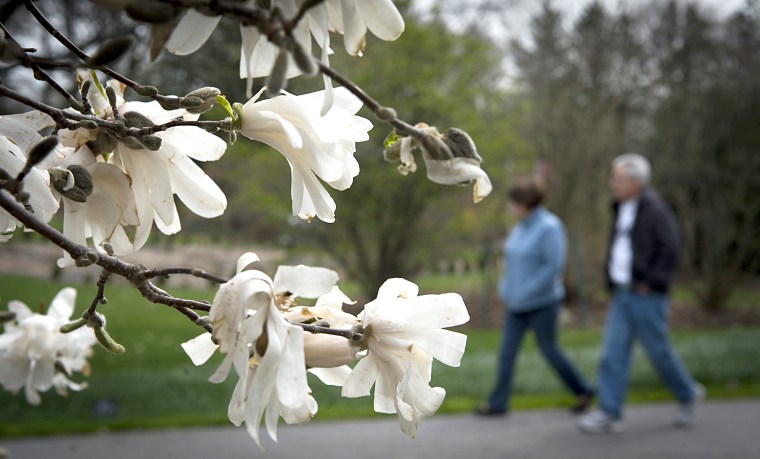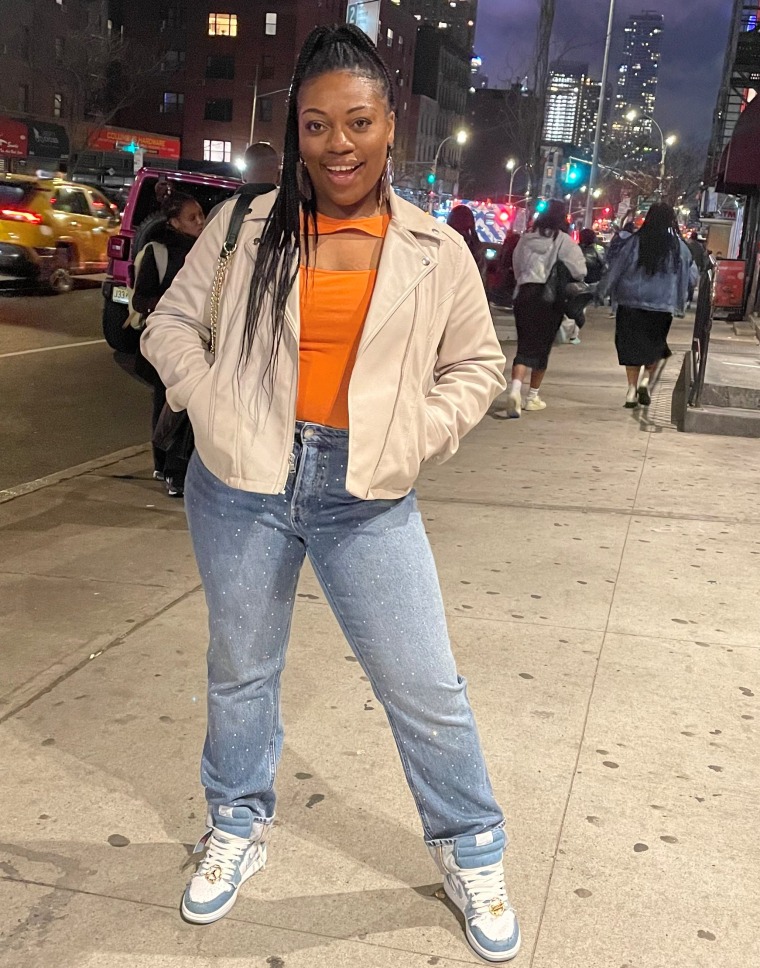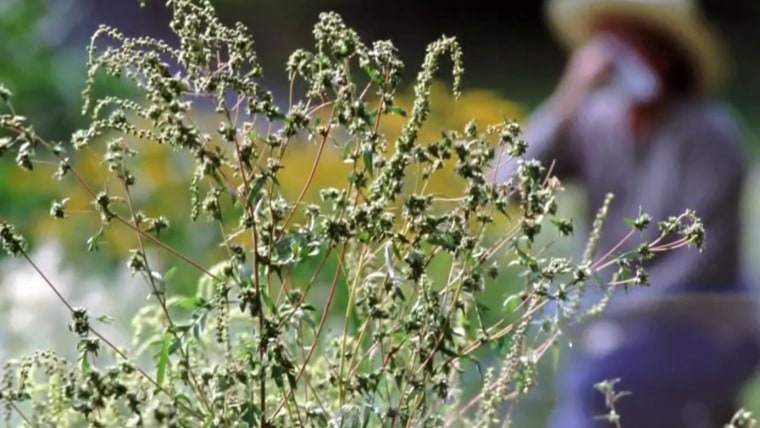[ad_1]
For several years now, we are living in a world where every sneeze, each hint of a scratchy throat or stuffy nose, gives a person pause. Is it Covid? Just a cold?
For a growing number of adults in their 30s, 40s and 50s, those symptoms are turning out to be hallmarks of something they’ve never had to deal with before: seasonal allergies.
“What I see is people coming in for the first time, especially over the last five, seven years or so,” said Dr. Clifford Bassett, an allergist at NYU Langone Health in New York City. “They will always say, ‘I don’t understand how this is happening to me.'”
Dr. Michele Pham, an allergist and immunologist at UCSF Health in San Francisco, has noticed the same trend.

“We’ve had patients coming to us saying, ‘This hasn’t been an issue in the past,'” said Pham. “Now they’re getting symptoms, or their allergy symptoms have significantly worsened.”
It’s not clear how many people are feeling pollen pain for the first time, although the Centers for Disease Control and Prevention reported recently that about a quarter of adults in the United States had a seasonal allergy in 2021, the first time the CDC tracked data on seasonal allergies for adults.
A large driver of adult-onset seasonal allergies appears to be climate change.
“The pollen season right now is about three weeks longer than it was 30 years ago, and there’s about 20% more pollen in the air,” said Dr. Neelu Tummala, an ear, nose and throat specialist and co-director of the Climate Health Institute at George Washington University. Those statistics come from research published in 2021.
As the Earth’s core temperature increases, Tummala explained, the ground thaws earlier in the year, rousing trees from their winter slumber, prompting them to flower and produce pollen earlier than ever.
A ‘pollen storm’
It’s not just that the season is lasting longer. The sheer amount of pollen in the air has exploded.
The combustion of fossil fuels — another cause of global warming —increases carbon dioxide. As CO2 levels go up, plants and trees produce more pollen.
Dr. Stanley Fineman, an allergist at Atlanta Allergy and Asthma and a spokesperson for the American College of Allergy, Asthma & Immunology, calls the phenomenon a “pollen storm.”
“The pollen counts, particularly this season, have been much, much higher than they’ve been in the past,” he said.
Symptoms are starting earlier in the year and are more severe. The increase in symptomatic allergies translates into more money spent on treatments, visits to the doctor and impacts on quality of life.
“It’s not just like pollen allergy seasons are annoying,” Tummala said. “They also also impact cognitive function. They impact sleep quality.”
Many people are likely genetically predisposed to allergies, but were never bothered by them before, experts say.
Now that the pollen counts have grown, “I think it affects them more, because their system is overloaded,” Fineman said.

Kiara Wilson, a 32-year-old teacher in Brooklyn, New York, said that all she experienced the past few spring seasons was a slightly itchy throat.
This allergy season, however, has been much different. “I couldn’t stop sneezing. Like, I had to sneeze between 50 to 75 times,” Wilson said. “I actually had to buy an allergy medicine for the first time.”
What are symptoms of seasonal allergies?
While many symptoms of allergies, such as congestion and coughing, can overlap with respiratory viruses, one symptom is a telltale sign of an allergic reaction: itching.
“The biggest symptom I would suggest is the itchiness of the eyes, nose and throat,” Bassett said. “You don’t get itchiness if you have a cold or if you’re having a sinus infection.”
Symptoms aren’t always clear, however, and can overlap with other respiratory illnesses.
“We’ve definitely had patients come to our clinic who thought they were having allergies, but they had Covid instead,” Pham said.
How are seasonal allergies treated?
The vast array of allergy medications in pharmacies can be overwhelming.
Topical therapies, either prescription or over-the-counter, that target the itch sensation tend to be most effective, UCSF Health’s Pham said. Those include nasal sprays, eyedrops and skin creams.
Not only are people seeking pollen relief for the first time; the lengthening allergy season and the growing amount of pollen in the air have prompted doctors to shift treatment guidance.
Tummala, of George Washington University, said some patients are needing to use allergy medications more often, in higher doses, or in combination with other strategies.
“Before you could get away with just using an intranasal steroid, and now you have to do a neti pot rinse and then the steroid,” she said.
Other ways to keep pollen away:
- Wearing a hat and sunglasses outdoors.
- Washing clothes.
- Taking a shower immediately after spending a significant amount of time outside.
Pollen counts tend to be lower in the mornings.
“If you need to do outdoor activities, that’s the time to do it,” Fineman said.
[ad_2]
Source link

